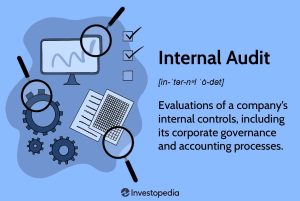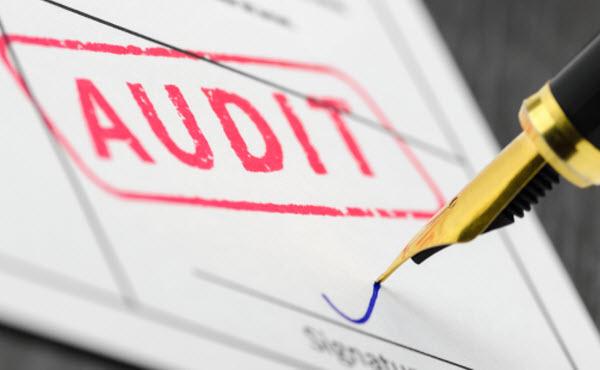Understanding the Essential Requirements for Auditing
The Importance of Auditing
Auditing plays a crucial role in ensuring transparency, accuracy, and compliance within organizations. Whether it’s financial statements, internal controls, or operational processes, audits provide stakeholders with confidence in the reliability of information. To conduct effective audits, it’s essential to adhere to specific requirements outlined by regulatory bodies and industry standards. What requirements are needed for auditing?
Regulatory Compliance
One of the primary requirements for auditing is compliance with relevant regulations. Depending on the industry and jurisdiction, organizations must adhere to specific legal frameworks governing financial reporting and corporate governance. For instance, in the United States, the Sarbanes-Oxley Act (SOX) imposes stringent requirements on public companies regarding internal controls and financial disclosure. Failure to comply with these regulations can result in severe penalties and reputational damage.
Documentation and Record-Keeping
A fundamental aspect of auditing is maintaining comprehensive documentation and records. Auditors rely on these documents to assess the accuracy and reliability of financial statements and other information. Proper documentation includes financial records, transactional data, policies, procedures, and internal control documentation. By maintaining organized and accessible records, organizations facilitate the audit process and demonstrate transparency to auditors.
Independence and Objectivity

Auditors must maintain independence and objectivity throughout the audit process to ensure impartiality and integrity. Independence ensures that auditors can perform their duties without bias or undue influence from the entities being audited. Objectivity requires auditors to remain neutral and impartial when evaluating evidence and forming conclusions. To meet this requirement, audit firms often establish policies and procedures to safeguard independence and objectivity, such as rotating audit partners and implementing quality control measures.
Competence and Professionalism
Auditing requires a high level of competence and professionalism to effectively evaluate complex financial information and identify potential risks and deficiencies. Auditors must possess relevant qualifications, such as certifications (e.g., Certified Public Accountant (CPA), Certified Internal Auditor (CIA)), and undergo continuous training to stay updated on industry developments and regulatory changes. Additionally, auditors are expected to adhere to professional standards and codes of conduct, such as those established by the American Institute of Certified Public Accountants (AICPA) and the International Standards on Auditing (ISA).
Risk Assessment and Planning
Before conducting an audit, auditors must perform risk assessment and planning to identify areas of potential risk and determine the scope and objectives of the audit. This process involves understanding the entity’s business environment, industry risks, internal controls, and regulatory requirements. By conducting thorough risk assessment and planning, auditors can allocate resources efficiently, prioritize audit procedures, and address significant risks effectively during the audit engagement.
Communication and Reporting
Effective communication and reporting are essential aspects of the auditing process. Auditors are required to communicate with key stakeholders, including management, board of directors, and regulatory authorities, to provide updates on the audit progress, discuss findings and recommendations, and address any concerns or inquiries. Furthermore, auditors must prepare comprehensive audit reports that clearly communicate the audit scope, objectives, procedures performed, findings, conclusions, and recommendations in a manner that is understandable to stakeholders.
Quality Control and Assurance
To maintain the integrity and credibility of the auditing profession, audit firms must establish robust quality control and assurance mechanisms. This involves implementing policies, procedures, and methodologies to ensure that audits are conducted in accordance with professional standards and regulatory requirements. Quality control measures may include peer reviews, internal inspections, training programs, and adherence to ethical principles. By upholding high standards of quality control and assurance, audit firms can enhance the reliability and trustworthiness of their audit services.

Continuous Improvement
Auditing is an iterative process that requires continuous improvement and adaptation to evolving business environments, technological advancements, and regulatory changes. Audit firms must foster a culture of continuous learning and improvement by seeking feedback, analyzing performance metrics, and implementing lessons learned from previous audit engagements. By embracing innovation and best practices, auditors can enhance the effectiveness and efficiency of their audit procedures, ultimately providing greater value to their clients and stakeholders.
Conclusion
In conclusion, auditing requires adherence to various requirements to ensure the integrity, reliability, and effectiveness of the audit process. From regulatory compliance and independence to risk assessment and quality control, auditors must uphold high standards of professionalism, competence, and ethical conduct. By meeting these requirements and continuously improving audit practices, auditors can enhance stakeholder confidence, mitigate risks, and contribute to organizational success. What requirements are needed for auditing?


